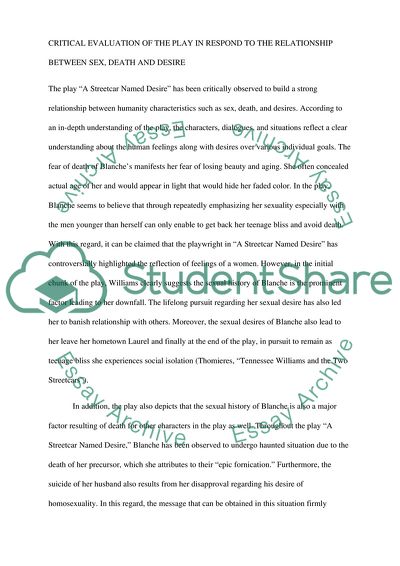Cite this document
(A Streetcar Named Desire by Tennessee Williams Research Paper, n.d.)
A Streetcar Named Desire by Tennessee Williams Research Paper. Retrieved from https://studentshare.org/literature/1846043-research-paper-play-a-streetcar-named-desire
A Streetcar Named Desire by Tennessee Williams Research Paper. Retrieved from https://studentshare.org/literature/1846043-research-paper-play-a-streetcar-named-desire
(A Streetcar Named Desire by Tennessee Williams Research Paper)
A Streetcar Named Desire by Tennessee Williams Research Paper. https://studentshare.org/literature/1846043-research-paper-play-a-streetcar-named-desire.
A Streetcar Named Desire by Tennessee Williams Research Paper. https://studentshare.org/literature/1846043-research-paper-play-a-streetcar-named-desire.
“A Streetcar Named Desire by Tennessee Williams Research Paper”, n.d. https://studentshare.org/literature/1846043-research-paper-play-a-streetcar-named-desire.


